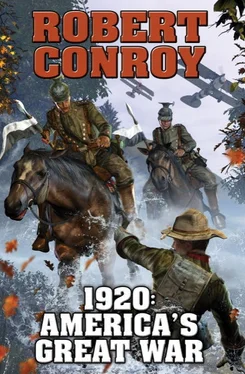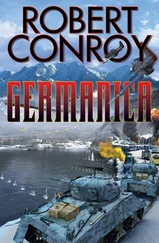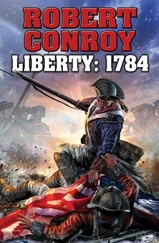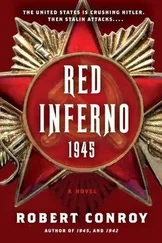Ironically, the Germans hadn’t been much smarter in the early days of the war. They too had marched across bloody fields in mass formations. But they quickly learned the error of their ways.
In a curious twist of linguistic irony, Field Marshal Sir John French commanded the British forces operating in France. He was widely considered to be overtimid and did not get along well with either his own officers or his allies. Carville wondered if a more aggressive leader might have avoided this debacle. Perhaps not, he concluded. There’d been too many Germans and too few British, although three hundred thousand Brits hardly counted as a trifle. They and their French so-called allies had confronted more than two million Germans.
Carville was attached to Field Marshal French’s headquarters as a junior aide and could have avoided any contact with the fighting, but his upbringing and training demanded otherwise. On several occasions he’d gone to the front and watched as highly-trained British soldiers fired their Enfield rifles with a speed and accuracy that made the Germans think they had many more machine guns than existed. In front of the British, it had been the Germans who’d died in heaps. Too bad there were only a few hundred thousand British soldiers in the entire army and too bad they were all going to have to surrender. What, he wondered, would happen to poor England without an army? At least the Royal Navy was largely intact and could probably defend the nation from a German invasion.
Being part of the headquarters’ staff, Carville knew things that others didn’t. He knew that, months earlier, their French allies had been informed that the German Army on the Marne had split and that a counterattack on the German westernmost flank would stop them in their tracks.
But no, the old-fashioned French generals rejected the notion because they didn’t quite trust the sources. Much of the information had come from pilots who’d seen the German mistake, but they simply hadn’t been believed. People who fly planes are all mad, don’t y’know. The commander at Paris, General Joseph Gallieni, had begged for permission to attack the exposed German flank, but had been denied. Sit tight and wait, he’d been told. When the Germans were defeated at the Marne he could attack their retreating forces. Carville’s own leader, Marshal French, had also been reluctant to authorize a risky breakout.
Of course, the British and the French had been defeated at the Marne and Paris taken after a short but bloody siege that saw many landmarks, like the Eiffel Tower and Notre Dame, in ruins. The British and French armies had retreated south, hoping to reach the Mediterranean and rescue. Instead, they had gotten no further than the city of Clermont. The French army had disintegrated while the British stayed intact and continuously bloodied the noses of the Germans.
Carville felt pity for the French soldier, the poilu , and contempt for his leaders. Of course, he wasn’t all that fond of the English leaders who’d led him to this surrender field. In his opinion, Field Marshal Sir John French was a horse’s ass.
Carville also knew that the Germans were exhausted and at the end of their tether. Their armies were in disarray and their supply lines had been unable to keep up with their army’s needs. The German Army was in rags and almost out of food and ammunition. One good push and they’d either be stopped or defeated.
One problem—the French army no longer existed and the British Army was in even worse shape than the Germans. Victory, Carville concluded, would go to the side that was least exhausted. Wellington had prevailed in battle and called it a near-run thing. Well, this campaign had been a close one, but the result had been defeat, not victory.
Carville saw Sergeant Smith—the sergeant pronounced it ‘Smeeth’—staring at him. “Well, sergeant, are you ready?”
“Oy, but I’ll fookin’ hate it.”
Carville grinned. Smith sometimes affected an outrageous accent when he felt like it. He and the dimunitive, wiry and outspoken Smith went back several years. Smith was a consummate professional soldier of the King. “I can’t think that anyone’s looking forward to a German prison camp,” Carville said. “Can’t imagine it’ll be for too bloody long, though.”
Smith nodded glumly. “Oy don’t give a shit how long it be. Oy’ve lost too minny mates to take kindly to Germans. Hate the bastards, I do. Next time I hope their lordships in London gives us at least a fookin’ fighting chance to kill the Kraut fuckers.”
Carville clapped him on the shoulder. The little man had killed more than a dozen Germans with his Enfield. As a sniper, he was almost a legend. In fact, the only better shot Reggie Carville knew of was Reggie Carville.
Whistles blew and men formed up. Carville nodded at Smith and returned to headquarters. They would march out, turn in their weapons, and be returned to their encampment. Officers would be paroled to live in local hotels, and the enlisted men would be kept at the camp until arrangements were made. Carville didn’t think they would take long. The Germans didn’t want to have to house and feed three hundred thousand Brits any longer than they had to.
What really concerned Carville was the thought of the world with Germany as its only preeminent power. England had been defeated. France and Russia had been crushed. There was no one left to be a real rival to Imperial Germany and the ambitions of the half-mad and half-crippled Kaiser. The United States was a possibility, but they seemed more than content to hide behind their ocean moats and listen to their president, Woodrow Wilson, proclaim how terrible war was and how important it was that the United States stay out of it.
Carville sighed at such naiveté. What was one do when the town bully attacks you? Someday, America and Woodrow Wilson were in for a rude awakening.
Later, as he marched through the German lines, he saw how fatigued and dispirited they were. They looked at their late enemies with dull, dispirited eyes. Their faces were gaunt, their uniforms filthy and torn. Damn it, Carville thought. We could have had them.
 CHAPTER 1
CHAPTER 1 
His horse was near collapse and the six armed men chasing him were gaining steadily. The old and scrawny mare’s chest was heaving and her whole body was covered with sweat and foam. It hadn’t been such a great horse in the first place, and was thoroughly outclassed by the well-bred cavalry mounts pounding behind him and gaining with every stride.
Luke Martel would soon be helpless on the ground, confronted by a half dozen German lancers—Uhlans—who would like nothing better than to spit him like a rodent on one of their spear points. The Uhlans’s uniforms and weapons were archaic, but archaic or not, their lances could impale human flesh with ease.
Since he was pretending to be a civilian, Martel was armed with a Colt revolver and not his more powerful .45 automatic service weapon. Even though he thought lancers were an anachronism in twentieth-century warfare, the revolver he carried was an inaccurate weapon and carried such a light round that it might not stop a horse, much less a human being. That assumed he could hit either if forced to fire at a gallop from his staggering nag.
The river and safety were to his right, maybe a quarter of a mile away. But first he had to reach the river and, second, he had to cross it without getting captured or killed.
He looked behind him. His pursuers were momentarily hidden from view. A curve in the dirt track that passed for a road gave him an opportunity. Another curve was just in front of him. He slipped from his horse and slapped it hard on its flank. Freed of its unwelcome burden and motivated by the slap, the mare lurched forward and behind the curve where it disappeared from view.
Читать дальше

 CHAPTER 1
CHAPTER 1 










